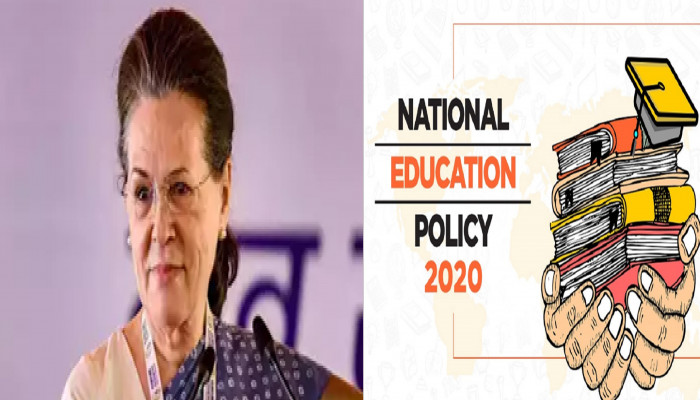Sonia Gandhi criticises NEP: Calls out 'three Cs' plaguing Indian education
- In Reports
- 05:22 PM, Mar 31, 2025
- Myind Staff
Sonia Gandhi, the leader of the Congress, harshly criticized the National Education Policy (NEP) 2020 on Monday, claiming that the Union BJP government was using it as a means of "centralising power, commercialising, and communalising" the education system.
"The Union Government's track record over the last decade has convincingly demonstrated that in education, it is concerned only with the successful implementation of three core agenda items the centralisation of power with the Union Government; the commercialisation and outsourcing of investments in education to the private sector, and the communalisation of textbooks, curriculum, and institutions," said Sonia Gandhi. She asserted in an editorial piece in The Hindu that the policy conceals the government's "profound indifference" to the education of India's children and young.
She said that the administration has excluded state governments from important decision-making processes, writing, "Unchecked centralisation has been the hallmark of this Government's functioning over the last 11 years, but its most damaging consequences have been in the domain of education." She noted that since September 2019, the Central Advisory Board of Education, which consists of state and federal ministers, has not met. Additionally, Sonia Gandhi said that by denying money intended for the Samagra Shiksha Abhiyan (SSA), the government "coerced" state governments into implementing the PM-SHRI scheme. "These funds have been due to States for years as part of the financial support required to implement the Right of Children to Free and Compulsory Education (RTE) Act," she wrote, noting that the Parliamentary Standing Committee on Education had specifically called for the unconditional release of SSA funds.
She cited the new draft guidelines for the University Grants Commission (UGC) in 2025 as evidence of the NEP's negative effects on higher education, arguing that they seek to reduce the influence of state governments in selecting vice-chancellors. "The Union Government has given itself through the Governors who are typically designated as the Chancellor of the University near-monopoly power in the selection of the Vice-Chancellors in State universities," she stated, calling it a "grave threat to federalism." Gandhi also criticised the government for promoting "unchecked privatisation" in school education. She claimed that the NEP weakens the idea of neighbourhood schools, which are protected under the RTE Act, by encouraging the concept of "school complexes." According to her, this has resulted in the closure of nearly 90,000 public schools since 2014, while the number of private schools has grown.
She also criticised the change from block grants to funding through the Higher Education Financing Agency (HEFA). She argued that this system forces universities to take loans, which eventually leads to an increase in student fees. "Between 78% to 100% of these loans are being repaid by universities through student fees. In other words, the price of the Government's retreat from financing public education has been borne by students facing fee hikes," she wrote.
Regarding communalisation, she charged that the government was "indoctrinating and cultivating hatred through the education system." She criticised the selection of faculty members based on ideological factors rather than academic ability and pointed to changes made to NCERT textbooks that eliminated references to the assassination of Mahatma Gandhi and Mughal history. She warned that this objective includes weakening the requirements for academics and vice-chancellors. "Leadership positions in key institutions... have been reserved for pliant ideologues," she said.
"Over the last decade, our education systems have been systematically cleansed of the spirit of public service, and education policy has been sanitised of any concerns about access to and the quality of education," Gandhi wrote, calling for an end to what she called the "carnage" of India's public education system.







Comments